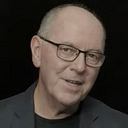New Knowledge is a Crucial Aspect of the Creative Process
At the heart of Greg Twemlow’s CreatED initiative lies a copyrighted definition of Creativity that sets this program apart:
“Creativity is the process of solving by asking open questions that elicit thoughtful replies, exposing new knowledge to inspire non-obvious, novel solutions and artistic works.©” Copyright Greg Twemlow
This expansive definition surpasses the traditional confines of Creativity, revealing the creation of art* as an ongoing inquiry, discovery, and innovation process.
*“Art,” as defined in the patent process, is the uniqueness of your creative expression. Patent examiners consider prior “art”, which is pre-existing creative expression. A prehistoric cave painting can be prior art. A centuries-old piece of technology can be prior art. A previously described idea that cannot possibly work can be prior art. Anything can be prior art.
This understanding of Creativity positions it as an innate capability within all individuals, ready to be awakened and nurtured through curiosity and exploration. It highlights the significance of questioning as the spark for creative thought, fostering a mindset that continuously seeks deeper comprehension and innovative directions. Such an approach democratizes Creativity, asserting that everyone holds the potential to engage in creative problem-solving and artistic expression through the art of questioning and exploration.
The definition points to the revelation of new knowledge as a crucial aspect of the creative process. It proposes that Creativity goes beyond utilizing existing information or skills, urging a venture into the unknown, and forging previously unseen connections. This concept echoes the philosophy behind the Enso Circle, wherein the true essence and beauty of creative work are found not in its flawlessness but in its capacity to present new perspectives and stimulate reflection.
By characterizing Creativity in this manner, the CreatED initiative invites individuals to broaden their comprehension of what it means to be creative, offering a practical framework for nurturing Creativity in every facet of life. Whether in art, science, education, or daily problem-solving, this definition serves as a prism through which Creativity can be acknowledged, celebrated, and deliberately cultivated.
Against the backdrop of the 21st century, marked by the ascent of artificial intelligence and machine learning, the human spirit of Creativity shines as a pivotal beacon of innovation and uniqueness. As we traverse this era of unparalleled technological progress, fostering creative thinking from an early age is recognized as both an educational imperative and a societal need.
The imperative to nurture Creativity faces obstacles entrenched in the historical development of educational systems. The roots of suppressing young people’s Creativity can be traced back to the educational reforms of the 19th century, which were designed primarily to equip individuals for industrial and clerical roles.
This era emphasized rote learning, memorization, and conformity over creative thinking and problem-solving, a trend reinforced by the need to meet the demands of a rapidly industrializing society. Such curricula focused narrowly on subjects directly pertinent to the workforce. They sidelined creative and critical thinking, laying the groundwork for a model of education that stifles creative capacities rather than fostering them.
The legacy of the 19th-century educational paradigm persists in many of today’s systems, which prioritize standardization, conformity, and competition. This historical insight underscores the urgent need for educational reform that champions creative thinking, adaptability, and lifelong learning as cornerstones for navigating the complexities of contemporary life.
Challenging the notion that Creativity is the exclusive domain of the inherently gifted, the CreatED initiative envisions a world where Creativity is nurtured and celebrated across all stages of life. Through innovative programs and the involvement of parents and educators, CreatED serves as a guiding light toward a future where educational models are transformative, encouraging exploration and embracing the unknown.
Parents, as the unsung muses of Creativity, and educators, as its cultivators, are pivotal to this vision. They are tasked with creating environments that spark the creative process, supported by the wisdom of Stoicism and the insights of contemporary thought leaders who emphasize courage, persistence, and the acceptance of imperfection as essential elements for unlocking creative potential.
In this narrative, the historical and contemporary champions of Creativity inspire us, from Einstein’s playful curiosity to Aristotle’s profound inquiries, underscoring the timeless and transcendent nature of creative endeavors.
The CreatED initiative, enriched by the philosophical depth of the Enso Circle, invites us on a journey of discovery and expression, reminding us that at the heart of Creativity lies the courage to make a mark, the persistence to overcome obstacles, and the wisdom to find beauty in the incomplete and imperfect.
About the author: Greg Twemlow, Founder of XperientialAI©.
Greg Twemlow: “Empowering future leaders and organizations by designing and delivering AI-integrated experiential learning programs that blend technology, ethics, and philosophy. Through consultancy, mentorship, innovation coaching, and thought leadership, I help CEOs, business leaders, and individuals ethically and efficiently implement AI solutions while fostering a culture of trust, integrity, and wisdom in an AI-driven world.” Contact Greg: greg@xperiential.ai
